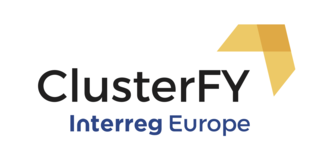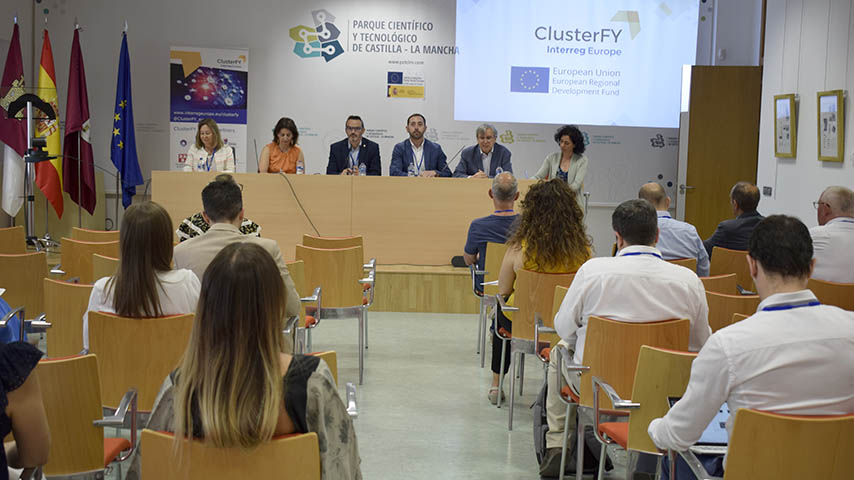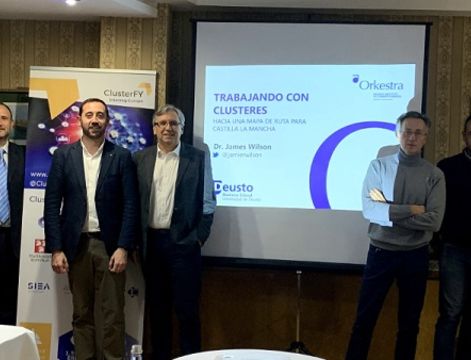The ClusterFY team in Castilla-La Mancha organised a workshop focused on the promotion of clusters and how to foster policy instruments to support these cooperative initiatives, as a regional tool to improve sustainable development. On this occasion, the event was held at Hotel Doña Carlota on Wednesday 4th December 2019, Ciudad Real (Spain).
This workshop provided attendees with specialized external support in order to set the basis of the cluster policy roadmap for Castilla-La Mancha. Examples and lessons learnt from leading territories and countries were shared by our keynote speaker in a dynamic, practical session.
On this occasion, James Wilson, Research Director at Orkestra Basque Institute and one of the most renowned cluster experts worldwide, was our guest speaker. Key regional R&D players, potentially interested in the development of cooperative actions related to cluster development, attended this working session. The list of participants included, among others:
- Gerardo Brasal, Head of Technological Innovation Service of the DG of Enterprise, competitiveness, and internationalization (Regional Government of Castilla-La Mancha).
- Juan José González and Francisco Javier Pinar, Director and Technical Administrator of CLAMBER biorefinery, respectively.
- Emilio Nieto, Director of the National Hydrogen and Fuel Cell Technology Testing Centre, and Vanesa Sendarrubias as a project manager.
- Óscar de la Rubia and Julio Bono, Chief Operating Officer and Director of the Institute for Concentration Photovoltaics Systems, respectively.
- Jorge Parra, Director of the Metal Technological Center of Castilla - La Mancha (ITECAM).
- Javier Cantón, Director of the Research and Development Department of Comunitelia S.L.
- Juan Bautista Torrente, Director of the Castilla-La Mancha Science and Technology Park.
- Luis Noé, Director of the Foreign Trade and Investment Institute of Castilla-La Mancha (IPEX).
The agenda of the event covered three main parts aimed to answer two question: “WHAT steps are necessary to promote the cooperation among stakeholders leading to cluster initiatives” and “HOW the region has to proceed to put in motion such initiatives”. All participants were very active and exposed their vision, concerns, and needs. As a result of the session, a basic roadmap for the next months was sketched, including these three main steps: (1) Analyse and diagnose the potential in the region and select the smart sectors to work with; (2) socialise, explore and determine the level of willingness of the actors to work following a cluster approach; and, (3) find the best governance structure to implement the actions in cooperation.










